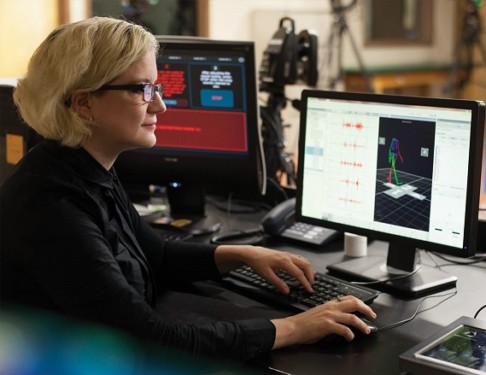Residency Dates: June 26, 2022 - July 16, 2022
Application Deadline: January 21, 2022
With an interdisciplinary career blending classical training in cello and composition, sound/audio data research, and innovative computational arts education, Margaret Anne Schedel transcends the boundaries of disparate fields to produce integrated work at the nexus of computation and the arts. She has a diverse creative output with works spanning the interactive multimedia opera The King Listens, virtual reality experiences, sound art, video game scores, and compositions for a wide variety of classical instruments or custom controllers with interactive audio and video processing. She is internationally recognized for the creation and performance of ferociously interactive media and won the 2019 Pamela Z Innovation Award. Her solo CD, Signal through the Flames, will be released by Parma Records in2020. She holds a certificate in Deep Listening with Pauline Oliveros and has studied composition with Mara Helmuth, Cort Lippe and McGregor Boyle and Geoffrey Wright and improvisation with George Lewis and Mark Applebaum. Schedel is a joint author of Cambridge University Press’s Electronic Music and recently edited an issue of Organised Sound on using electroacoustic terminology to describe pre-electric sound. Her work has been supported by the Presser Foundation, Centro Mexicano para laMúsica y les Artes Sonoras, and Meet the Composer. She has been commissioned by the Princeton Laptop Orchestra, Ictus, reACT, Yarn|Wire and the Unheard-of//Ensemble. Her research focuses on gesture in music, the sustainability of technology in art, and sonification of data; she co-authored a paper published in Frontiers of Neuroscience on using familiar music to sonify the gaits of people with Parkinson’s Disease. She serves as a regional editor for Organised Sound and is an editor for the open access journal Cogent Arts and Humanities. From 2009-2014 she helped run Devotion, a gallery in New York City focused on the intersection of art, science, new media, and design. As an Associate Professor of Music at Stony Brook University, she taught SUNY’s first Massive Open Online Course (MOOC) for Coursera, and formerly served as the director of the Consortium for Digital Arts Culture and Technology. Schedel currently serves as the Chair of the Art Department and leads the Making Sense of Data Workgroup at the Institute of Advanced Computational Science. She also teaches computer music composition at the Peabody Institute of the Johns Hopkins University. In her spare time, she curates exhibitions focusing on the intersection of art, science, new media, and sound while running www.arts.codes, a platform and artist collective celebrating art with computational underpinnings.
Residency Statement:
I look forward to working with musicians and performing artists who transmit emotion over time. In order to recruit a diverse cohort, I commit to welcome all approaches to structuring creative work that engages with the concept of organizing sound, even if the work does not create audible spectra. Associates should be prepared to: 1) speak about their own work and their influences; 2) engage in critical dialog about music / sound art / visual music; 3) discuss more practical concerns such as notation, technical problems, or documentation; and 4) commit to developing a community over the course of the residency. Collaboration between residents will be encouraged but not required. During the residency we will engage in Deep Listening practices to heighten our consciousness of the world of sound and the sound of the world. In addition to group meetings, I will be available for individual artistic/career coaching and am happy to look at professional materials such as resumes and cover letters. I will bring a small 8.1 setup for residents interested in multichannel sound.
Prospective Associates Should send:
- A short bio with a sentence about what the other residents could learn from you (550 words max*, PDF)
- A statement of any specific goals or interests related to the residency (1000 words max*, PDF)
- 2 recorded work samples (video links or audio) with accompanying scores if appropriate (PDF)
- Program note or artistic statement about the 2 work samples (PDF)
*Shorter is acceptable and encouraged
Residency Fee: Waived for this Residency (Includes a weekday meals and housing; does not include artist materials, transportation, or weekend meals.)
For details, please visit the mentoring artist details page.
Application fee: $25

